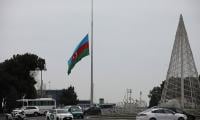Islamabad: Immediate need to withdraw all the regressive taxation provisions in the Budget 2024-25 and fixing income tax exemption threshold at Rs100,000 per month or Rs1.2 million annually were the main recommendation of the report released by Aurat Foundation on Wednesday.
The report also demanded specific tax breaks for women, particularly those who are widowed, divorced or never married considering the rapidly rising phenomenon of the feminization of poverty. The report is based on an overview, critique and policy options of the Federal Budget 2024-25 and has been authored by renowned economist Dr. Kaiser Bengali on behalf of Aurat Foundation. The report also called for exemption of essential items such as milk, infant feeds, bakery products, school supplies, etc., from taxation altogether.
The report further mentioned that the root of the economic crisis is the existence of two gaps – rupee gap and dollar gap – or in other words, the budget deficit and trade deficit. “A situation exists where expenditure is more than twice revenues and imports more than twice exports – and the two 100 per cent plus deficits have been debt-financed for more than two decades. It appears that the national economy is now functioning primarily to service debts.”
The document said that the situation is a product of years – rather, decades – of fiscal mismanagement and profligacy through debt financing, rather than strengthening the productive base of the economy. “This is patently unsustainable and it is not surprising that the economy is creaking. The solutions are clear. Expenditures will have cut to what revenues can afford and imports will have to be cut to what exports and remittances can afford. This correspondence is important for the following reason. Debt servicing is on account of debt incurred to finance deficits. If expenditures continue to exceed revenues, deficits will continue to be positive and the additional deficits will continue to add to debt. Thus, the additional debt creation needs to cease,” stated the report.
The report identifies cuts on energy subsidies, defence and civil administration to control civil administration expenditures and revision, amendment and cancellation of past energy agreements that built in guaranteed cost-plus payments for power purchase and guaranteed payments for electricity based on generation capacity rather than on actual purchase.
It says that one option that has been floated is debt/equity swap: conversion of debt into equity. “This option should be applied only to Pakistani investment and not to foreign ones, so as to obviate creating future foreign exchange outflows on account of profit remittances,” the report suggests. It says that defence expenditure is a sensitive matter, concerning the security of the country. “However, there appears to be a component of non-combat defence expenditure that needs to be curtailed.” It adds that the civil administration expenditure reduction is currently under the radar.
Legendary poetess Parveen Shakir. — APP/FileIslamabad: The Parveen Shakir Trust will observe the 30th death...
Coordinator General of COMSTECH Prof Dr Muhammad Iqbal Choudhary seen in a meeting on the launch of the “COMSTECH...
Children seen at the 'Bookshaw' session for children and a health camp for mothers and babies organised by Association...
Fatima Jinnah Women’s University building can be seen. — ILM Website/FileRawalpindi: Fatima Jinnah Women...
A general view of the Margalla Hills Islamabad can be seen in this image. — Facebook/Islamabad Wildlife Management...
A picture from an exhibition based on rare pictures of Quaid-e-Azam inaugurated by Assistant Commissioner Murree on...







